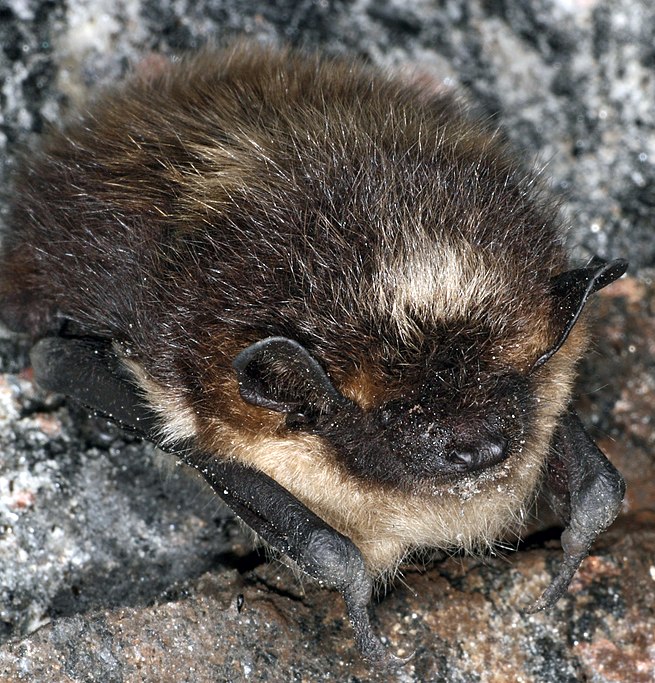
-
Hibernation
Hibernation is a state of inactivity and metabolic depression in endotherms. Hibernation refers to a season of heterothermy characterized by low body-temperature, slow breathing and heart-rate, and low metabolic rate. It most commonly occurs during winter months.
Although traditionally reserved for “deep” hibernators such as rodents, the term has been redefined to include animals such as bears and is now applied based on active metabolic suppression rather than any absolute decline in body temperature. Many experts believe that the processes of daily torpor and hibernation form a continuum and utilize similar mechanisms. The equivalent during the summer months is aestivation.
Hibernation functions to conserve energy when sufficient food is unavailable. To achieve this energy saving, an endothermic animal decreases its metabolic rate and thereby its body temperature. Hibernation may last days, weeks, or months – depending on the species, ambient temperature, time of year, and the individual’s body-condition. Before entering hibernation, animals need to store enough energy to last through the duration of their dormant period, possibly as long as an entire winter. Larger species become hyperphagic, eating a large amount of food and storing the energy in fat deposits. In many small species, food caching replaces eating and becoming fat.Some species of mammals hibernate while gestating young, which are born either while the mother hibernates or shortly afterwards. For example, female polar-bears go into hibernation during the cold winter months in order to give birth to their offspring. The pregnant mothers significantly increase their body mass prior to hibernation, and this increase is further reflected in the weight of the offspring. The fat accumulation enables them to provide a sufficiently warm and nurturing environment for their newborns. During hibernation, they subsequently lose 15–27% of their pre-hibernation weight by using their stored fats for energy.True hibernation is restricted to endotherms; ectotherms, by definition, cannot hibernate because they cannot actively down-regulate their body temperature or their metabolic rate. Still, many ectothermic animals undergo periods of dormancy which are sometimes confused with hibernation. Some reptile species are said to brumate, but possible similarities between brumation and hibernation are not firmly established. Many insects, such as the wasp Polistes exclamans, exhibit periods of dormancy which have often been referred to as hibernation, despite their ectothermy.Botanists can use the term “seed hibernation” to refer to a form of seed dormancy.
-
Diapause
Diapause, when referencing animal dormancy, is the delay in development in response to regularly and recurring periods of adverse environmental conditions. It is considered to be a physiological state of dormancy with very specific initiating and inhibiting conditions. Diapause is a mechanism used as a means to survive predictable, unfavorable environmental conditions, such as temperature extremes, drought, or reduced food availability. Diapause is most often observed in all the life stages of arthropods, especially insects. Embryonic diapause, a somewhat similar phenomenon, occurs in over 130 species of mammals, possibly even in humans, and in the embryos of many of the oviparous species of fish in the order Cyprinodontiformes.Activity levels of diapausing stages can vary considerably among species. Diapause may occur in a completely immobile stage, such as the pupae and eggs, or it may occur in very active stages that undergo extensive migrations, such as the adult monarch butterfly, Danaus plexippus. In cases where the insect remains active, feeding is reduced and reproductive development is slowed or halted.
-
Hibernation (noun)
A state of inactivity and metabolic depression in animals during winter.
-
Hibernation (noun)
A standby state which conserves power without losing the contents of memory.
-
Hibernation (noun)
A state of minimum power consumption
-
Diapause (noun)
A temporary pause in the growth and development of an organism due to adverse environmental conditions (especially in insects and in the embryos of many of the oviparous species of fish in the order Cyprinodontiformes)
